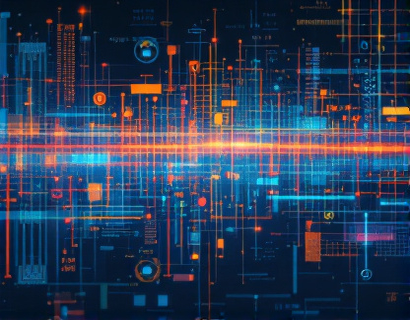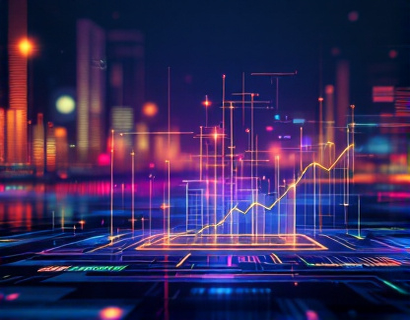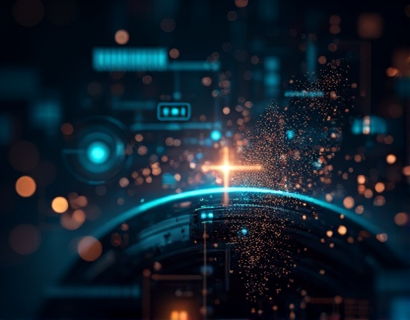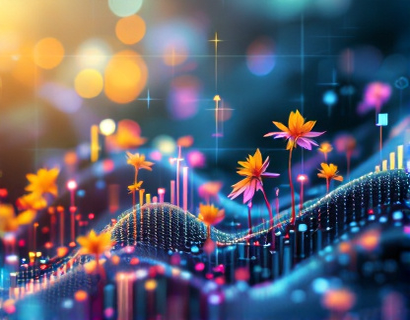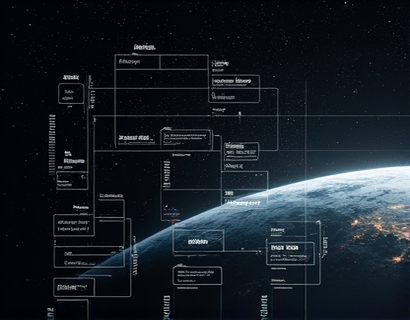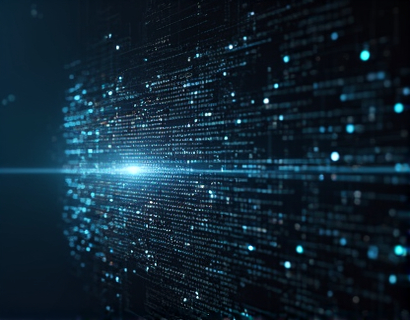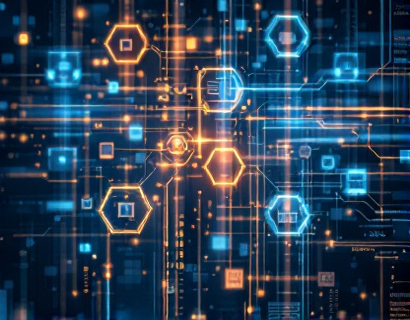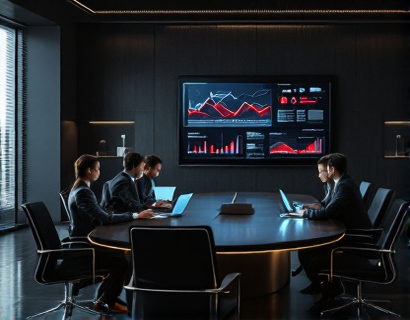Decentralized DAO Management: Revolutionizing Governance with Advanced Analytics and Collaboration Tools
In the rapidly evolving landscape of decentralized finance and autonomous organizations, the management of Decentralized Autonomous Organizations (DAOs) has become a critical area of focus. Traditional governance models are being transformed by innovative software solutions that leverage advanced analytics and collaboration tools. This shift aims to enhance transparency, efficiency, and decision-making within DAOs, enabling them to thrive in a decentralized ecosystem. This article delves into the transformative impact of these advanced software solutions on DAO governance, highlighting how they streamline management, provide comprehensive analytics, and foster enhanced collaboration and transparency.
The Need for Advanced DAO Governance Solutions
DAOs operate on blockchain technology, which inherently offers a high level of transparency and security. However, the complexity of managing a decentralized organization, with its numerous stakeholders and smart contracts, requires robust governance tools. Traditional methods of governance often fall short in handling the scale and intricacy of DAOs, leading to inefficiencies, miscommunications, and potential security risks. Advanced software solutions address these challenges by providing a comprehensive framework for governance, ensuring that DAOs can operate smoothly and effectively.
Streamlining Governance with Advanced Software
The introduction of advanced software for DAO management has revolutionized the way governance is handled. These platforms offer a suite of tools designed to simplify complex processes, from proposal management to voting and execution of decisions. By automating routine tasks, administrators can focus on strategic initiatives rather than getting bogged down by administrative duties. This not only increases efficiency but also reduces the potential for human error, ensuring that governance processes are executed accurately and promptly.
One of the key features of these advanced platforms is their ability to integrate seamlessly with blockchain networks. This integration ensures that all governance actions are recorded on the blockchain, providing an immutable and transparent record of decisions. Such transparency is crucial for building trust among stakeholders and maintaining the integrity of the DAO.
Comprehensive Analytics for Informed Decision-Making
Data-driven decision-making is a cornerstone of modern governance, and DAOs are no exception. Advanced analytics tools embedded within governance software provide deep insights into various aspects of the organization, from financial health to community engagement. These analytics enable administrators to make informed decisions based on real-time data, rather than relying on intuition or outdated information.
For instance, financial analytics can track the flow of tokens, identify potential discrepancies, and forecast future financial trends. Community analytics can gauge member participation, sentiment, and engagement levels, helping administrators understand the needs and preferences of the community. These insights are invaluable for crafting policies and initiatives that align with the DAO's goals and the interests of its members.
Enhanced Collaboration Tools
Collaboration is essential in a decentralized environment where stakeholders are geographically dispersed and operate independently. Advanced governance software includes collaboration tools that facilitate communication, coordination, and collective decision-making. These tools include discussion forums, project management boards, and real-time messaging systems, all integrated within a single platform.
Discussion forums allow members to engage in meaningful conversations, share ideas, and provide feedback on proposals. Project management boards help track the progress of various initiatives, assign tasks, and set deadlines, ensuring that projects stay on track. Real-time messaging systems enable quick and efficient communication, reducing the latency often associated with decentralized communication.
These collaboration tools not only streamline workflows but also foster a sense of community and shared purpose among members. By providing a centralized space for interaction, these tools help overcome the challenges of distance and time zones, ensuring that all voices are heard and valued.
Transparency and Trust through Blockchain Integration
Transparency is a fundamental principle of decentralized governance, and blockchain technology plays a pivotal role in achieving this. By integrating with blockchain, governance software ensures that all transactions and decisions are recorded in a tamper-proof ledger. This level of transparency builds trust among stakeholders, as they can verify the authenticity and integrity of governance actions at any time.
Moreover, blockchain integration allows for the creation of smart contracts that automate and enforce governance rules. Smart contracts execute predefined actions when certain conditions are met, eliminating the need for intermediaries and reducing the risk of manipulation. This automation not only speeds up the governance process but also ensures that rules are consistently applied, further enhancing trust and reliability.
User-Friendly Interfaces for Inclusive Governance
To ensure broad participation and inclusivity, advanced governance software must be user-friendly and accessible to all members, regardless of their technical expertise. Intuitive interfaces and comprehensive documentation help users navigate the platform with ease, reducing the learning curve and encouraging active participation.
Features such as multilingual support and accessibility options cater to a diverse user base, making the governance process more inclusive. By lowering barriers to entry, these platforms empower a wider range of stakeholders to contribute to the DAO's decision-making processes, fostering a more democratic and representative governance model.
Case Studies and Real-World Applications
Several DAOs have successfully implemented advanced governance software, reaping the benefits of streamlined management, enhanced analytics, and improved collaboration. One notable example is a decentralized finance (DeFi) DAO that used analytics tools to optimize its lending protocols based on real-time market data. This led to more efficient resource allocation and higher returns for members.
Another example is a content creation DAO that utilized collaboration tools to manage a global team of contributors. The platform's discussion forums and project management boards enabled seamless coordination, resulting in high-quality content production and increased member satisfaction.
These case studies demonstrate the practical applications and positive outcomes of adopting advanced governance solutions in DAOs. They serve as valuable references for other organizations looking to enhance their governance frameworks.
Challenges and Considerations
While the benefits of advanced governance software are clear, there are challenges and considerations that DAOs must address. One key challenge is the initial setup and integration of these platforms, which can be complex and resource-intensive. Organizations need to invest in training and support to ensure smooth adoption.
Another consideration is the need for continuous updates and maintenance to keep the software aligned with evolving governance requirements and technological advancements. Security is also a paramount concern, as any vulnerabilities in the software could compromise the integrity of the DAO.
To overcome these challenges, DAOs should partner with experienced developers and consultants who specialize in blockchain and governance solutions. Regular audits and security assessments can help identify and mitigate potential risks, ensuring the long-term stability and success of the DAO.
Future Trends in DAO Governance
The landscape of DAO governance is continually evolving, with new technologies and approaches emerging to address existing challenges and unlock further potential. One promising trend is the integration of artificial intelligence (AI) and machine learning (ML) into governance platforms. AI can enhance predictive analytics, automate more complex decision-making processes, and provide personalized insights for administrators.
Another trend is the development of interoperable governance frameworks that allow DAOs to collaborate and share resources across different blockchain networks. This interoperability can lead to more robust and resilient decentralized ecosystems, where organizations can leverage the strengths of multiple DAOs.
As the adoption of advanced governance solutions grows, we can expect to see more standardized best practices and regulatory frameworks emerge. These developments will further legitimize DAOs as viable organizational structures, attracting more participants and investments.
Conclusion
Advanced governance software is transforming the way DAOs are managed, offering a range of benefits that enhance efficiency, transparency, and collaboration. By leveraging comprehensive analytics and robust collaboration tools, administrators can make data-driven decisions that drive sustainable growth and success. As the technology continues to evolve, DAOs that embrace these innovations will be better positioned to thrive in the decentralized ecosystem.






